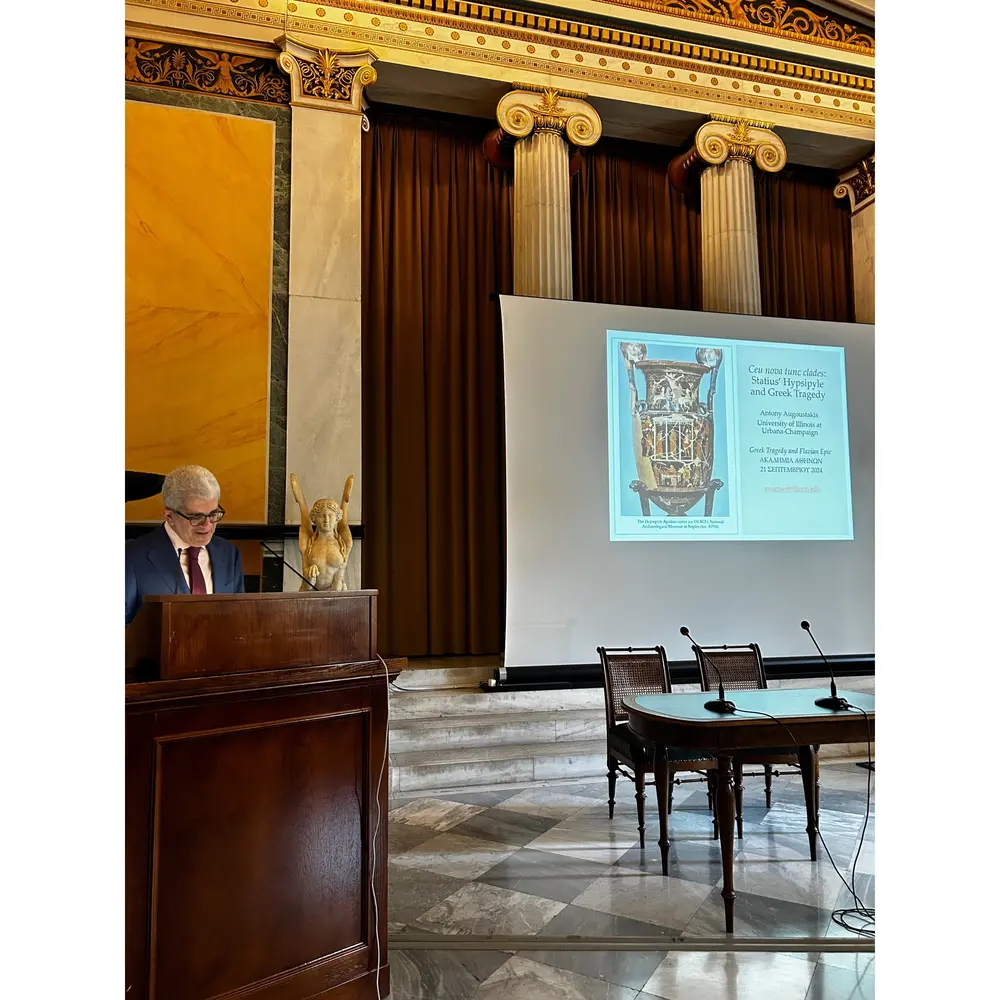
Classics professor Antony Augoustakis recently gave a keynote lecture at the prestigious Academy of Athens.
The academy is Greece’s leading intellectual and research institution, its name and founding principles hearkening back to the ancient Academy of Plato.
Augoustakis’ keynote was on “Statius’ Hypsipyle and Greek Tragedy,” the topic of his current research. It was the culmination of the conference, “Greek and Roman Tragedy in Flavian Epic Poetry,” organized by the University of Athens.
What is your area of expertise?
My research focuses on representations of mother and gender dynamics in first century CE Latin literature, and in particular, epic poetry in the period—that is, poetry related to Roman history or Greek/Roman mythology, but with relevance for the current times of the period, especially under the Flavian emperors, Vespasian, Titus, and Domitian (69-96 CE).
What are you currently researching?
My research analyzes the influence of ancient Greek tragedy on Latin literature, in particular the tragic story of a nurse neglecting the baby entrusted to her. The baby dies and becomes a child hero worshipped in central Greece in ancient times. This mythological story is particularly relevant today, not only because of its mother/child resonances (who is the mother? Birth or adopted mother?) but also because we have recently discovered in Egypt fragments of the Greek tragedian Euripides in a tomb dedicated to a mother and child. The fragments of the now lost tragedies deal with parents losing their children. These fragments were known to Latin poets (Statius) but were unknown to us until now, and we can see the breadth of knowledge ancient poets had and how they interacted with their literary past. Child mortality in antiquity was ubiquitous and very relevant to the ancient authors and poets.
Why are you passionate about this area of study?
I believe what excites me about my work is how relevant these topics are thousands of years after antiquity and how interested our students are in classics and ancient studies in general, especially the ancient Mediterranean.
What are you most proud of when it comes to your research?
I’ve enjoyed working with my coauthors and coeditors from around the world and participating in many international conferences, including organizing some myself.